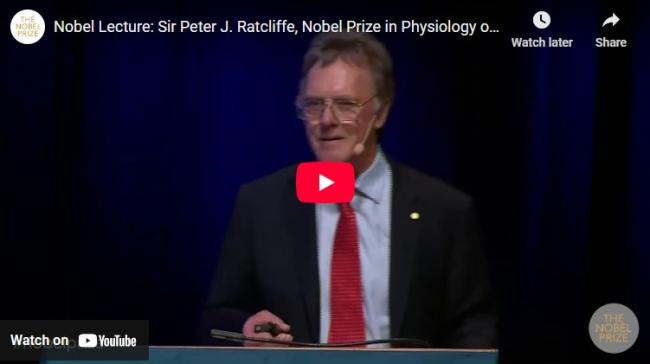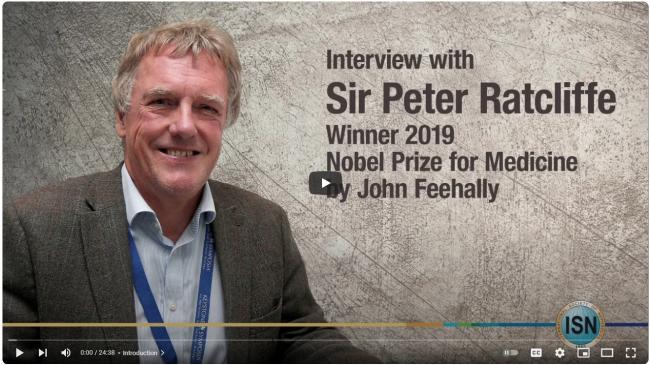Renal Basic Science
Peter Ratcliffe, oxygen sensing and the Nobel Prize

From the 1980s recombinant human erythropoietin (Epo) became available for the treatment of renal anaemia. Peter Ratcliffe, a young nephrologist working at the University of Oxford, had been studying mechanisms of ischaemic renal injury. With the arrival of EPO, Peter began investigating the molecular basis for oxygen sensing in the kidney, and the stimulus given by hypoxia to erythropoietin production.
Over the next 30 years, his work led to an understanding that oxygen sensing was not restricted to highly specialised cells in the kidney but rather was a ubiquitous mechanism in mammalian cells, with therapeutic potential well beyond treatment of renal anaemia.
Among the many nephrologists who worked over the years as clinician scientists in the Ratcliffe lab were Patrick Maxwell (now Regius Professor at the University of Cambridge), Chris Pugh and David Mole (both continue at the University of Oxford), Jonathan Gleadle (now Flinders University, Melbourne, Australia) and Emma Vaux (now Royal Berkshire NHS Foundation Trust, Reading).
For this work, Professor Sir Peter Ratcliffe FRS was awarded the 2019 Nobel Prize for Physiology or Medicine (shared with American scientists William G Kaelin, Jr and Gregg Semenza).
Watch the video of Peter Ratcliffe’s lecture given at the Nobel Prize ceremony:

An interview with Sir Peter Ratcliffe shortly after being awarded the Nobel Prize:

